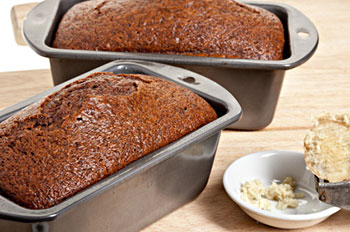Eating Healthy: the Basics
1. What is a healthy breakfast?
2. What is a healthy lunch?
3. What is a healthy dinner?
4. How much should I weigh?
5. How many calories should I be eating?
6. What is the best way to lose
weight?
7. How can I keep my weight loss
goal in mind and stay motivated?
8. What is a healthy weekly weight loss?
9. How to set weight loss goals and make
them happen
10. How to keep a food diary, and
why it is essential to successful weight loss
11. Are all fats bad for you?
12. Are saturated fats bad
for you?
13. Are
unsaturated fats good for you?
14. Are carbohydrates bad for you?
15. Is fiber good for you?
16. How to read nutrition/food labels
17. How to plan your weekly menus
18. Why should I eat less salt?
19. What
do the sodium (salt) numbers mean on food labels?
20. What is The Mediterranean Diet?
21. Why eating vegetables is good for
you
22. Why eating fruit and nuts
is good for you
23. Why are cereals and whole grains good for you?
24. What are legumes, and why are they good for you?
25. Why is eating fish good for you?
26. Which fats and oils are good for
you?
27. Are dairy products good for you?
28. Which meats should I not eat?
29. Is drinking alcohol good for
you?
30. Is it important to measure your
ingredients?
31. Are snacks good for you?
32. How to choose the right portion size
33. Can you lose weight with a smaller
plate?
34. Eat healthier by cleaning out your
pantry
35. Which oils and fats should I keep in my pantry?
35. Which oils and fats are good for you - and when should I use them?
36. Which carbohydrates are good for you?
37. What is the best chicken or turkey for you?
38. Are dairy products good for you?
39. Which nuts and seeds should I eat?
40. Is red meat like beef or pork bad or good for you?
41. Is eating dessert good or bad for
you?
42. Is drinking soda bad for you?
43. Is drinking coffee bad for you?
44. How can healthy food taste good? Part 1
45. How can healthy food taste good? Part
2
46. How to eat healthy while eating
out
47. Are vitamins and supplements necessary
to eat healthy?
48. How to eat healthy while traveling
Eating Healthy: the Basics
Are carbohydrates (carbs, carbos) bad for you?

Every time I hear someone say that carbs are bad for you I just want to scream. Go outside and start hollering as loud as I can. It's just silly. Take this as gospel, carbohydrates are good for you!
Carbohydrates are chains of sugar molecules called saccharides. A single sugar molecule is known as a monosacchride, while two sugars joined together are called a disaccharide. These are called simple sugars because they easily break down in the body into monosaccharides. The monosaccharide glucose is important because it's the primary fuel for your body, and all usable carbohydrates contain glucose molecules. Combining the monosaccharides glucose and fructose results in the disaccharide called sucrose (good old fashioned table sugar).
Chains longer than two monosacchrides are called polysaccharides. These are considered complex carbohydrates (also called starches or complex sugars). Starches contain at least some glucose and these complex carbohydrates break down a little slower than simple carbs.
When you look at the Nutrition Facts box on foods you'll see carbohydrates listed in grams. This is the total amount of carbs - both simple and complex. Sugars are listed for the amount of simple carbohydrates. Subtract the simple carbs from the total carbs and you have about the number of grams of complex carbohydrates or starches.
None of this sounds particularly evil but, like fats, carbohydrates have come to be feared as the culprit responsible for weight gain. This is just plain silly. While we now have proof that Atkins type low carb diets do work, they are not the miracle diets that they are made out to be. Research shows that weight loss is about eating fewer calories. Period.
The reason that low carb diets work is because of the poor quality carbohydrate choices folks generally make. It's easy to lose weight when you stop eating potato chips, french fries, crackers, candy, cake, ice cream, etc.. This is why people succeed on the Atkins or South Beach diet. They simply quit eating junk.
You do not have to quit eating carbs - just make better carb choices. This is another great example of how to eat great food and eat healthy by choosing the best quality calories.
It's pretty easy really. A Milky Way Bar has 240 calories. Of that there are 41 grams of carbohydrates, of which 35 grams are sugar. That works out to about 9 teaspoons of sugar (rather a lot). As with many low quality calorie foods, there's also a lot of fat: 10 grams of fat per bar (7 grams of saturated fat). Open the candy bar, eat in a few minutes, full of sugar (and fat) and it's gone.
Compare this to having a large apple. Fewer calories (190) and a bit less carbs (30) but without any fat. Full of fiber, filling and really satisfying. Interestingly, there's good research showing that folks are just as satisfied eating an apple (but don't feel as guilty as when they have chocolate).
Portion control is the most important rule for whatever carbohydrate you choose. By simply knowing what the best choices are and how much is in a serving you can have your carbs and eat them too.
